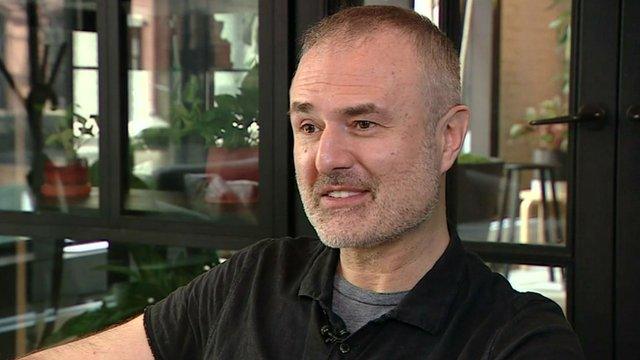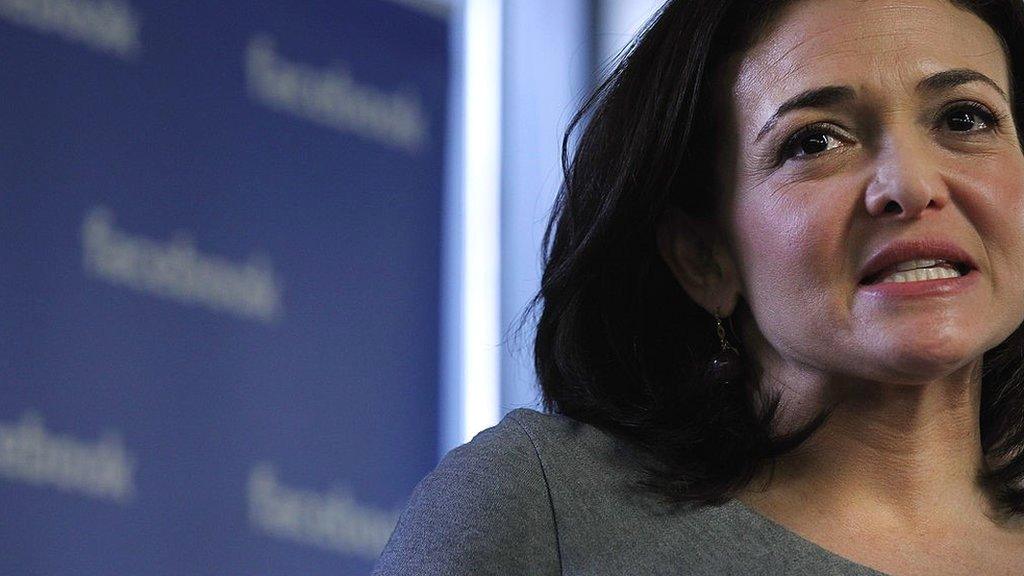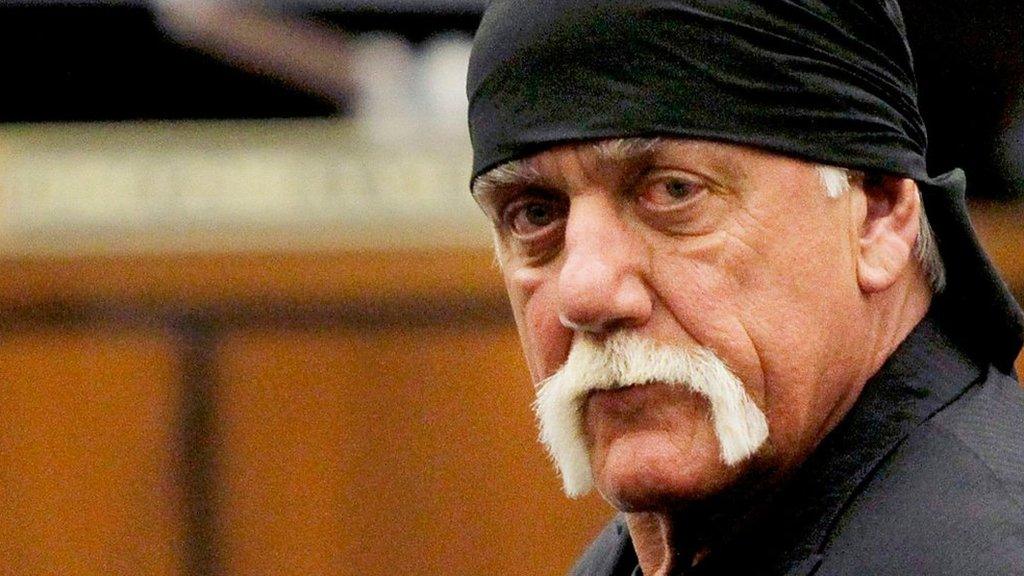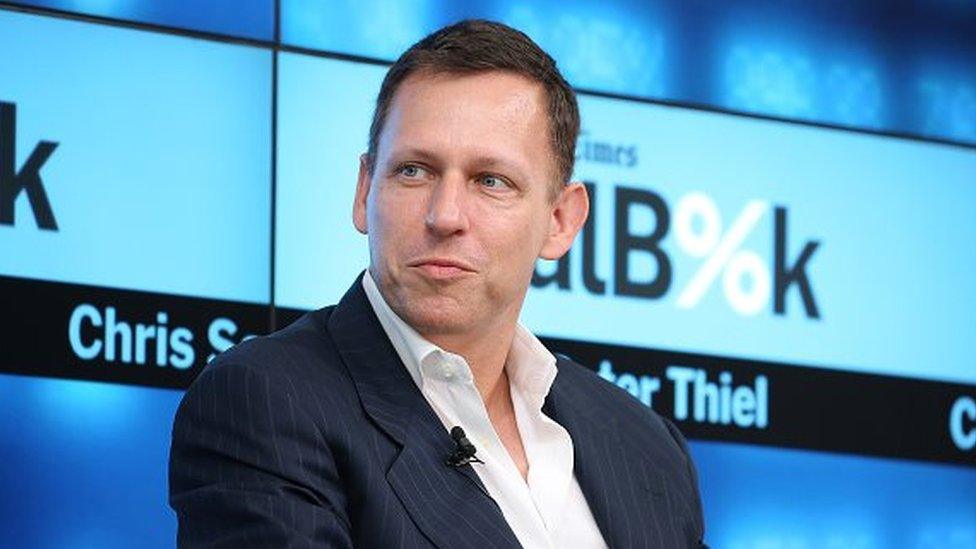Gawker 'confident' about Hulk Hogan legal appeal
- Published
Nick Denton: Peter Thiel should expect the occasional critical piece in the media
The boss of Gawker Media, Nick Denton, has said he is "confident" of succeeding in an appeal in a legal case that threatens the group's survival.
In March, Gawker was ordered to pay wrestler Hulk Hogan $140m (£97m) for invading his privacy by publishing a sex tape.
Mr Hogan's legal bill was paid by tech billionaire Peter Thiel, who said he wanted to curb Gawker's "bullying".
Mr Thiel clashed with Gawker in 2007 over an article that outed him as gay.
He has been criticised for using his wealth to try to silence the media by giving financial help to Mr Hogan and others that Gawker had written about. Mr Thiel has described his actions as "philanthropic".
'Thicker skin'
Now in an interview with the BBC, Mr Denton has said the venture capitalist and PayPal co-founder should accept that his position means he will be scrutinised in public.
"If you're a billionaire and you have power and access to the media, you should expect now and then to get the occasional critical piece," said Mr Denton.
"A wiser approach to getting angry and trying to sue a media company out of existence is to... develop a thicker skin."
Mr Denton said the 2007 Gawker article was not the only reason Mr Thiel disliked the media.
"My guess is that he has been more upset by the mockery of his political views," he told the BBC. "He is a supporter of Donald Trump, he is a libertarian, he resists the interference by terrestrial governments."
Mr Thiel was among the "most extreme" of tech luminaries, Mr Denton said.
Asked about the $140m judgement against Gawker, he said: "I'm confident that when this case comes before judges in a higher court that people will find again there is a place for critical journalism and it deserves to be protected.
"There are substantial protections for the free press in the United States and there's protection for criticism."
He defended Gawker's journalism saying it had "written a lot of stories, broken a lot of stories and annoyed a lot of powerful people."
There was a "need for critical voices especially in the modern world, especially in the United States", he said.
- Published3 June 2016

- Published2 June 2016

- Published27 May 2016

- Published27 May 2016
